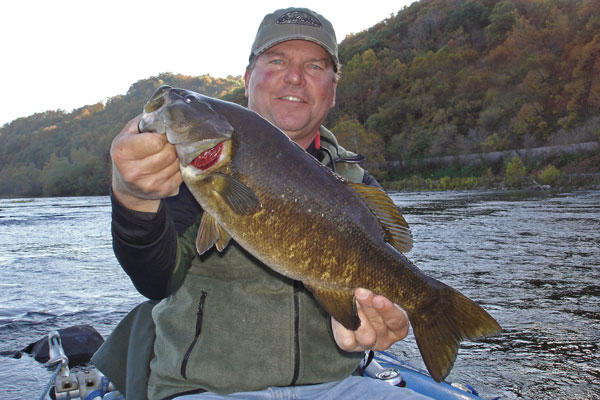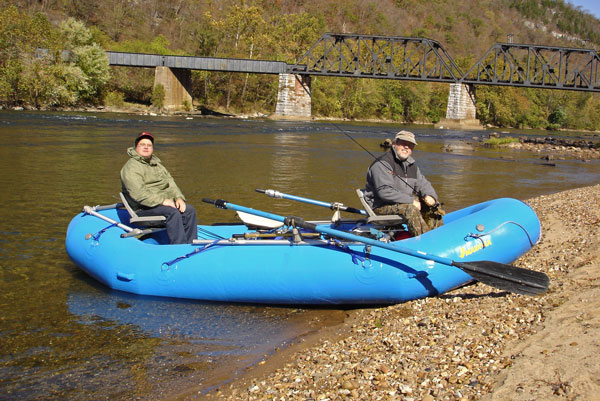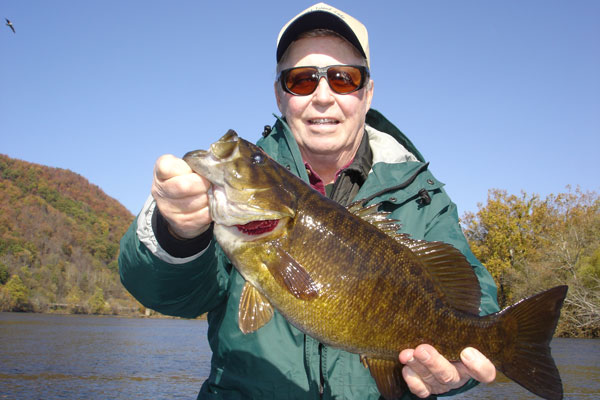Why the New River this Fall?
by Britt Stoudenmire
Over the last fourteen years of guiding full-time on the New River for smallmouth and musky for our parent company New River Outdoor Co, I have often reflected on my favorite months of the year to fish and guide. I have found that I favor March for personal fishing while October stands out in my mind as my favorite month to guide. Sounds confusing doesn't it? How can I have two favorite months? I often talk about our spring trophy season but rarely do I talk about fall fishing. Maybe it is because fishing can be tough if the water gets low and clear or it might be that I don't want to bring any attention to it since so many anglers are into "other" things as river traffic vacates. While I only have a "few" reasons why we haven't discussed it, I have many more reasons why it is a must-do. And those reasons might not be what you expect.

Return to Tranquility
After many months of the hustle and bustle of a busy river full of anglers, canoers, kayakers, and tubers, the New River "begins" to slow down in August as school starts back. Labor Day marks the mainstream end to the paddling season but by late-Sept and into October, the river becomes virtually void of river traffic, especially so during the middle of the week. Weather withstanding, the river becomes "more" peaceful again and we are really able to take in the scenery and majesty of the river. On the fishing side, fish that have been pressured throughout the season tend to ease up and begin moving shallower to feed for the fast-approaching winter. On the weather side, the crisp air of a beautiful fall morning can really get the blood flowing. The toughest decision of the day is often the choice between sandals or closed faced shoes as the crisp air warms into beautiful sunshine.

Great Fishing
Flip March 180 degrees and you will have October. For instance, in March the days are getting longer, triggering the photoperiod when fish since the urge to feed heavily in preparation for their transition from their wintering areas to their spawning areas. In October, the days are getting shorter triggering fish to feed heavily in preparation of their transition back to their wintering areas. We use many of the same tactics in the fall that we use in the spring except for one major difference. Often times, the spring provides higher water levels making it easier to pattern feeding fish. Bait is just becoming active and current breaks become a key location for intercepting these moving and often hungry fish. Fall, on the other hand, is often characterized by lower water levels making it a bit more challenging to pattern transitioning and hungry fish. We counteract that challenge by trying to cover as much water as possible and often topwater offerings become our top choice. Big blowups on cool mornings as the fog lifts off the river will raise the heart rate of almost any angler.

